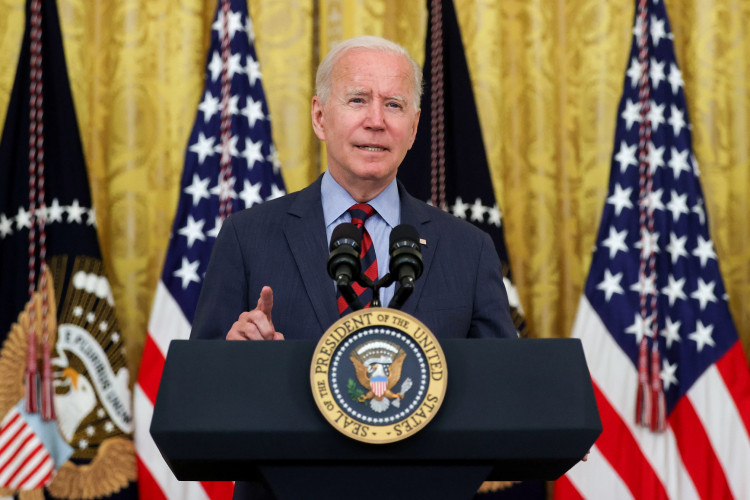Amid escalating tensions in the Middle East, the White House is reportedly deliberating its course of action should Israel proceed with a military offensive in Rafah, defying explicit cautions from President Joe Biden against such actions without a viable plan to safeguard Palestinian civilians. This development has sparked concerns within the administration and among congressional Democrats, who fear President Biden's appeals may be disregarded, potentially undermining the effectiveness of the United States on the global stage.
Senator Chris Van Hollen, D-Md., a member of the Senate Foreign Relations Committee, expressed frustration over the situation, noting, "Time and again, President Biden calls upon the Netanyahu government to take certain actions, and for the most part, time and again, Netanyahu ignores the president of the United States."
As Israel edges closer to initiating an incursion into Rafah, the southernmost city in the Gaza Strip, the Biden administration has set a March 24 deadline for Israel to provide assurances that its use of American weapons complies with international law. The U.S. has contemplated various responses, including the potential withholding or delay of military sales to Israel, signaling a shift in the longstanding alliance between the two nations.
Top U.S. officials have yet to receive concrete plans from Israel regarding the proposed military operation in Rafah, despite Prime Minister Benjamin Netanyahu's approval. The U.S. has advised Israel against a large-scale military operation, recommending smaller, targeted counterterrorism missions instead.
The National Security Council emphasized the importance of prioritizing civilian protection, stating, "We have been clear about the need to prioritize civilian protection." This stance comes as Netanyahu's government deepens ties with other U.S. adversaries and seeks new sources of military hardware.
Senate Majority Leader Chuck Schumer's recent call for new elections in Israel to replace Netanyahu has added another layer of complexity to the U.S.-Israel relationship. President Biden described Schumer's speech as "good," underscoring the shared sentiments among many Americans regarding the situation.
The potential Israeli offensive in Rafah has drawn widespread criticism from international actors, including the United States and the Netherlands. U.S. Secretary of State Antony Blinken emphasized the need for a clear and implementable plan from Israel that ensures civilian safety, while the Dutch foreign minister, Hanke Slot, called for Israel to refrain from such an offensive, citing concerns over a humanitarian catastrophe.
The humanitarian situation in Gaza remains dire, with Jagan Chapagain, head of the International Federation of Red Cross and Red Crescent Societies, describing it as "beyond catastrophic." The healthcare system is on the verge of collapse, and civilians face unprecedented levels of suffering.
Amid these developments, the arrival of the first aid vessel in Gaza, operated by the Spanish charity Open Arms, marks a potential opening for more assistance via maritime corridors. However, humanitarian organizations continue to advocate for the opening of more land border crossings to facilitate the efficient delivery of aid to the region.
As the situation unfolds, the international community watches closely, with the actions of the Israeli government and the response of the U.S. administration poised to shape the future of the region and the nature of U.S.-Israel relations.




